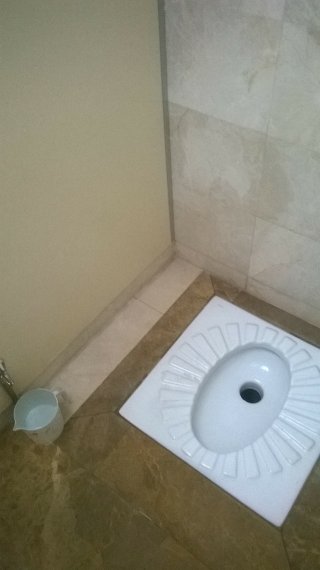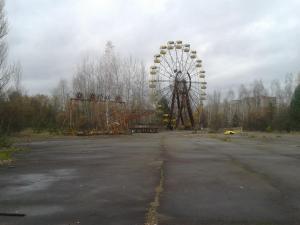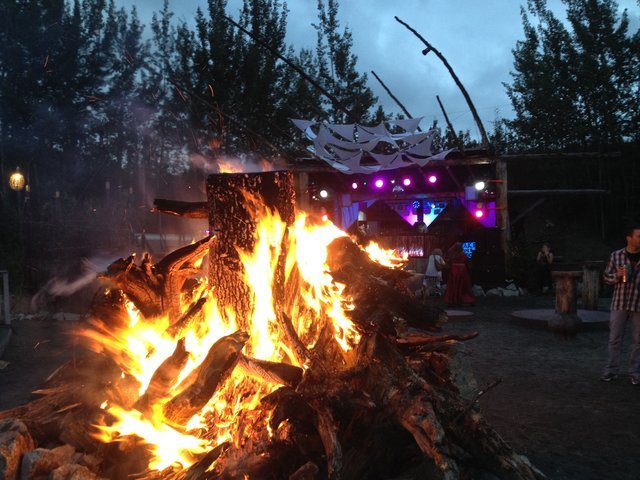
Yes, that’s right, I’m going to write it. The “P” word.
That’s right. Period. (Not the little dot at the end of a sentence, but the one that affects half the population for most of their lives.)
It’s funny how a word can make people cringe, even the sex it impacts directly. Why can’t we talk about it? It’s like a hidden suffering that all women must bear in silence. No one is supposed to know when “flow comes to town” and, no matter when or where it happens, you must deal with it in silence.
It can be difficult to plan—not everyone is consistent, and even when you are, occasionally it will decide to come a day or two before or after it is expected, and throw all your plans off course. Going on a long backpacking trip? Of course your period comes. Visiting a foreign country? Of course your period comes. Going to an important event like a wedding? Of course your period comes. It’s that date with a guy? Of course your period comes.
It’s almost like it stalks you and preys on the most important, awkward or uncomfortable moments possible and sabotages the events in your life. Doesn’t anyone else seem to find this? or is my body the only one in cahoots to constantly disrupt my life?
Travelling so much (and often in very different cultures) has shown me the extent to which—no matter where you are from, what religion you believe or government you have—women still go through this and deal with it according to their circumstances.
Spending a summer in Turkey, I experienced a very different side to how women deal with taking care of themselves “down there.” For one, there’s no sit-down flush toilets or toilet paper. There’s an open hole in the ground that you squat over, with a hose to clean yourself. Tampons don’t exist (reasons why are only my thoughts are related to religion and marriage), and often in some cultures like in Iran, one hand is for eating and the other hand is for cleaning yourself (and if you use the wrong hand for eating, it can be offensive and disgusting).
I remember one horrid experience where I was camping on a beach in the Republic of Georgia, hours from any kind of shop and with only a couple of people camped along the beach. I had spent the night in a tent with a guy I was seeing, and I awoke covered in blood. Yes, during the night my period had come, unexpected and early. The guy was mortified, and also concerned with how much blood there was … Tossing and turning in a sleeping bag had basically covered my body, including my arms, in blood. I went to the water, embarrassed, and washed as best I could. I then hoped to see if a fellow female along the beach had any sort of sanitary napkin to plug the situation. Fortunately, there was a German couple camping nearby and the woman provided me with a tampon. Relief. Unfortunately, that event ended my relationship.
With frequent adventures, I figured there must be a better way to deal with this—particularly when spending long days or overnights in the mountains.
Easter long-weekend is great. We get four days of work and get to plan some real adventures because the days are longer and the weather is warmer. However, I knew my “favourite friend” would be coming with me to sabotage my ski-touring trip. So I Googled some ideas and came across the Diva Cup: basically, a plastic funnel that captures the blood; then you pour it out, give it a wash, and it can stay in all day and all night.
Hard to believe this would be so convenient; it certainly proved useful during the trip. But, I mean, who doesn’t love being in the cold snow, trying to squat and manoeuvre this object to prevent blood spilling everywhere. Fortunately, the product proved to be extremely useful, but I wonder, with an upcoming trip to the Tombstones, if it will be as effective without the surrounding snow for washing and cleaning.
Even when you know your period is coming, you can plan, but often (perhaps due to stress) it can come much earlier than anticipated and always at exactly the wrong time.
This year, as a novice mountain biker and never-before road biker, I joined a four-person team for the Kluane Chilkat International Bike Relay. Having practiced beforehand, the farthest I’d been on a bike was 27 kilometres, but my two legs were the equivalent of almost 60 kilometres.
I rode the two legs through blistering winds over the summit, as literally everybody passed me. My legs were shaking; I felt what I thought were stitches, constantly. As I finally finished my legs, I was utterly exhausted. I went to Haines and felt like a shell of myself … How was that so hard? People three times my age were passing me … Am I that terrible at everything?
I had to eat and went to the fairgrounds for our free dinner. I was shaking and tears were streaming down my face uncontrollably. I had nothing left in me. I ate my food, cradled, and went to the bathroom to discover I was covered in blood. Yes, of course, during the race my period decided to grace me with its presence, a good week before it was supposed to come. Then, at the lowest point of my day, it was time to wash, unprepared for the moment, using toilet paper for a sanitary device. Then it was time to car camp, wake up and head home, never to do that race again.
The “P” word. It’s almost a dirty word to say in public, yet half the population gets their period from age 10 to 50 (some even older). That’s potentially 480 times (or more) in your life that you will “bleed,” each time a reminder that your body didn’t house “a little life form” that month; and for some of us, we never will. We can try hormones, such as birth control pills, to try and remove the nuisance of periods, but that works for some—not all. If we don’t want children, or had children when we were young, we can’t have our own bodies fixed to remove the burden, with tubes being tied, because we may change our minds about reproduction.
I’m sure others have their own horrid period stories. You can watch the movie Carrie and, although it’s a horror movie, completely relate to how awkward and mortifying these experiences can be (and how horrible women can be to each other).
I certainly have many stories of the awkward experiences of dealing with being female in this world—from gynecological exams in Turkey, to awkward questions with language barriers in Russia. Often women deal with hormonal shifts, erratic mood swings, horrid pain, costly items, and always at the worst-possible times in life and with as much grace as they can muster.
To my fellow women out there: We suffer together! So, let’s try to make the word period a normal word that we can talk about together without feeling embarrassed.

